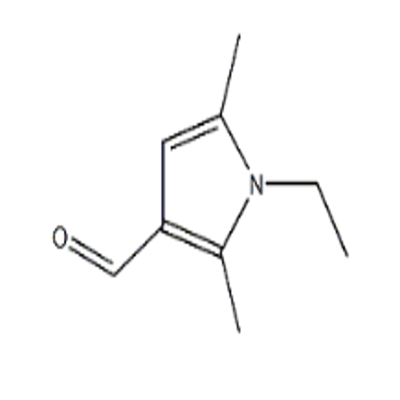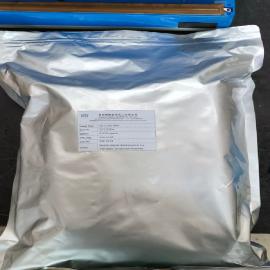-
Categories
-
Pharmaceutical Intermediates
-
Active Pharmaceutical Ingredients
-
Food Additives
- Industrial Coatings
- Agrochemicals
- Dyes and Pigments
- Surfactant
- Flavors and Fragrances
- Chemical Reagents
- Catalyst and Auxiliary
- Natural Products
- Inorganic Chemistry
-
Organic Chemistry
-
Biochemical Engineering
- Analytical Chemistry
- Cosmetic Ingredient
-
Pharmaceutical Intermediates
Promotion
ECHEMI Mall
Wholesale
Weekly Price
Exhibition
News
-
Trade Service
A few days ago, Anhui Huaye Fragrance Co.
Coincidentally, in recent years, international giants have deployed synthetic biology development in the field of flavors and fragrances through cooperation and acquisitions
Industry giants step up partnerships with biotech companies
Firmenich saw the application prospects of synthetic biology in the field of flavors and fragrances for a long time.
In 2016, Japan's Takasago Fragrance acquired the US company Centre Ingredient Technology
In 2019, BASF acquired Isobionics, a Dutch biotechnology company, adding 10 fermented spice products such as Valencia tangerene and citronone.
In 2021, DSM (DSM) acquires the flavors and fragrances business of American biotech company Amyris
In the domestic fragrance industry, Huaye fragrances are mainly synthetic fragrances, and the main products of Kehong Bio are natural fragrances
In this regard, industry insiders believe that the application of biotechnology in the flavor and fragrance industry has long appeared, but the cost is too high for consumers to afford.
Work together to make the industry more stable, efficient and sustainable
Sarah Reisinger, senior vice president of research operations at Firmenich, once said that the reason why biotechnology is valued is that it is highly efficient, and the P450 enzyme can efficiently achieve site-specific oxidation
It is understood that the main way of producing flavors and fragrances is the natural extraction of flavor plants or the chemical synthesis of chemical products
In addition, with the improvement of the quality of life, people's consumption concept is also changing, and they pay more and more attention to their own health and environmental protection
In fact, synthetic biology brings many benefits to the industry
Many flavor and fragrance molecules are found in plants at very low levels and need to be grown, harvested and extracted through large tracts of farmland
By studying the natural biochemical reaction pathway, determining the genetic code of the enzymes required in the pathway, integrating them into specific microbial chassis cells, producing through fermenters, and using microorganisms to convert sugar into target molecules, the desired spices can be produced.
Another benefit of microbial fermentation is that it is biological in nature, mimicking biochemical processes in a real natural environment
Plant-derived flavors and fragrances are extremely complex, such as vanilla extract, the main flavor component is vanillin, and other chemicals in vanilla provide other complex flavors, including smoky, spicy, sulfur, sweet and creamy, etc.
The large carbon footprint of chemical synthesis is another reason to drive biosynthesis
.
Synthetic biotechnology can reduce the carbon footprint of the production process by utilizing renewable carbon, increasing carbon efficiency in synthesis, maximizing biodegradable carbon, increasing the odor impact of each carbon, and more
.
Synthetic biology experts also believe that synthetic biology can provide more than 100% of the existing market products
.
"In addition to making all the wonderful molecules that exist in nature, you can make entirely new molecules that don't exist yet, and that's where over 100 percent comes from
.
"
Ginkgo Bioworks, which has a new partnership with Givaudan in 2021, is building a platform that allows customers to program cells as easily as a computer
.
At present, Ginkgo has achieved commercial production of 3 fragrance molecules
.
Among them, French flavor and additive manufacturing company Robertet is using two yeast-produced molecules designed by Ginkgo: one is gamma-decalactone, which has a strong peach smell; the other is a clear liquid massoia lactone
.
The latter can be sold for as much as $1,200/kg as a flavoring agent, and through the fermentation process, the product can be worth millions of dollars a year
.
These companies firmly believe that biotech flavors and fragrances can effectively avoid supply chains such as abnormal weather, seasonal factors, geopolitical instability, uneven quality, heavy metal and pesticide residues, and rising prices of chemical raw materials on the premise that customers want to stick to natural sources.
problem
.
What will the future flavor and fragrance industry look like? "Biotech products will account for 30 percent of the flavors and fragrances market in the next decade,
" said Katy Oglesby, Blue California's head of flavors and fragrances, at SynBioBeta Food and Agriculture in 2021
.
(Comprehensive arrangement by Yang Xiaojing)
"China Food News" (July 25, 2022 Edition 06)
(Editor-in-charge: Yang Xiaojing)







